Poverty in Germany in 2025: facts, background information & volunteering opportunities
Even though Germany ranks third among the world’s largest economies according to Statista, poverty is also a serious problem here. To make this major topic a little more tangible, in this article, we take a look at the questions of what poverty actually means, which groups are particularly at risk of poverty and what can be done to combat poverty.
- What is poverty?
- When is someone considered poor in Germany?
- Current figures on poverty in Germany
- What are the reasons for poverty in Germany?
- Who is particularly at risk of poverty?
- How many children live in poverty?
- What is the German government doing to combat poverty?
- How you can take action against poverty yourself
What is poverty?
Poverty essentially means that there is a lack of resources that severely impairs the quality of life and well-being of those affected. There are numerous definitions of poverty, with the concepts of absolute and relative poverty being the most common in science and politics.
- Absolute poverty means that a person lives below the subsistence level and cannot even afford to meet their basic needs. Basic needs include: Food, clothing, housing and access to medical care.
- Relative poverty , on the other hand, looks at a person’s financial situation in comparison to their social environment. Relative poverty also takes into account social inequalities, some of which are reflected in the fact that the people concerned can only participate in social life to a limited extent for monetary reasons. For the people affected in Germany, poverty manifests itself, for example, in poorer access to education, healthcare and housing.
When is someone considered poor in Germany?

There are various approaches to determining who and how many people are affected by poverty. We present the three most important ones.
Measurement based on the at-risk-of-poverty threshold
The most commonly used method for determining poverty in Germany is to look at the poverty risk threshold. It stipulates that all people who have less than 60% of the median income of the population as a whole are considered to be at risk of poverty. According to the microcensus study on income and living conditions, the threshold value in Germany was in 2022:
- for people living alone with a net income of €1,378 per month (2023: €1,314)
- for a household with two adults and two children under the age of 14, with a net income of €2,893 per month (2023: €2,759)
In its overview, the Federal Statistical Office also provides further detailed information on previous years and on the at-risk-of-poverty rate for different age groups and genders.
Measurement based on the World Bank’s absolute poverty line
The World Bank’s approach, which is widely used internationally, has set a fixed US dollar amount as a benchmark for measuring poverty. The international poverty line, which is used to measure extreme poverty in low-income countries, is currently set at US$3.00 per person per day (as of 2025). For low- to middle-income economies, the poverty line is currently US$4.20 per person per day, and for high- to middle-income economies, it is US$8.30. (more information here).
Holistic view through the Human Development Index (HDI)
In addition to income, the Human Development Index also takes into account education, life expectancy and regional/local poverty thresholds in various countries.
It looks at the long-term progress of a country’s population on the basis of three aspects:
- A long and healthy life for people
- Access to knowledge
- An adequate standard of living
The HDI thus goes beyond purely monetary resources and also considers things such as state of health, housing situation and the possibility of personal development. With a value of 0.959 (maximum = 1), Germany is relatively high up on the scale. The United Nations Human Development Report provides more details and comparisons with other countries.
Current figures on poverty in Germany
According to current data from Statista and Parietischer, approximately 15.5% of the German population (or around 12.9 million people) were at risk of poverty in 2024, meaning they were below the poverty risk threshold of 60% of the federal median equivalent income.
People who are affected by material and social deprivation or whose households have very low labour force participation are also considered to be at risk of poverty. According to the Federal Statistical Office, this brings the total number of people at risk of poverty in 2024 to 17.6 million, or one-fifth of the population.
Looking at the federal states, according to Statista, the at-risk-of-poverty rate in 2023 was highest in Bremen at 28.8%, followed by Berlin at 20% and Saarland at 19.7%. Further data on this topic can be found in the German government’s Poverty and Wealth Report.
Poverty and economic development in comparison
The survey conducted by the Paritätische Forschungsstelle (Parity Research Centre) on poverty and economic development between 2005 and 2024 clearly shows that although GDP per capita in Germany rose significantly between 2005 and 2024, the poverty rate remained at a consistently high level. This makes it clear that economic growth does not automatically lead to less poverty.
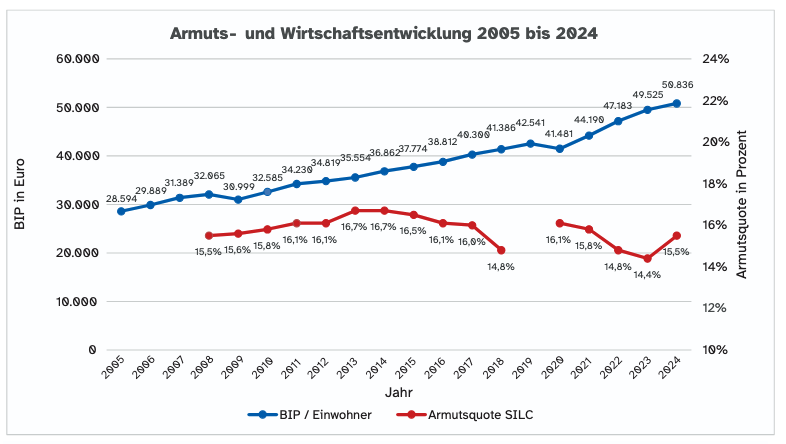
What are the reasons for poverty in Germany?
There are various causes of poverty, but they are often linked to a person’s social background. For example, children from socially disadvantaged families have, on average, significantly worse starting conditions and fewer resources than those from academic households, for example.
The dependence of one’s own development on social background is referred to as ‘social mobility’. This varies from country to country, as Statista shows based on the OECD study ‘A Broken Social Elevator’. The study measures how long it takes for the descendants of a family in the lowest income decile (bottom 10 per cent) to reach the average income. In Germany, this currently takes six generations, which indicates low social mobility in comparison. There are also other factors such as individual circumstances and events, migration and displacement, or one’s own family situation, which we will describe in more detail in the next chapter.
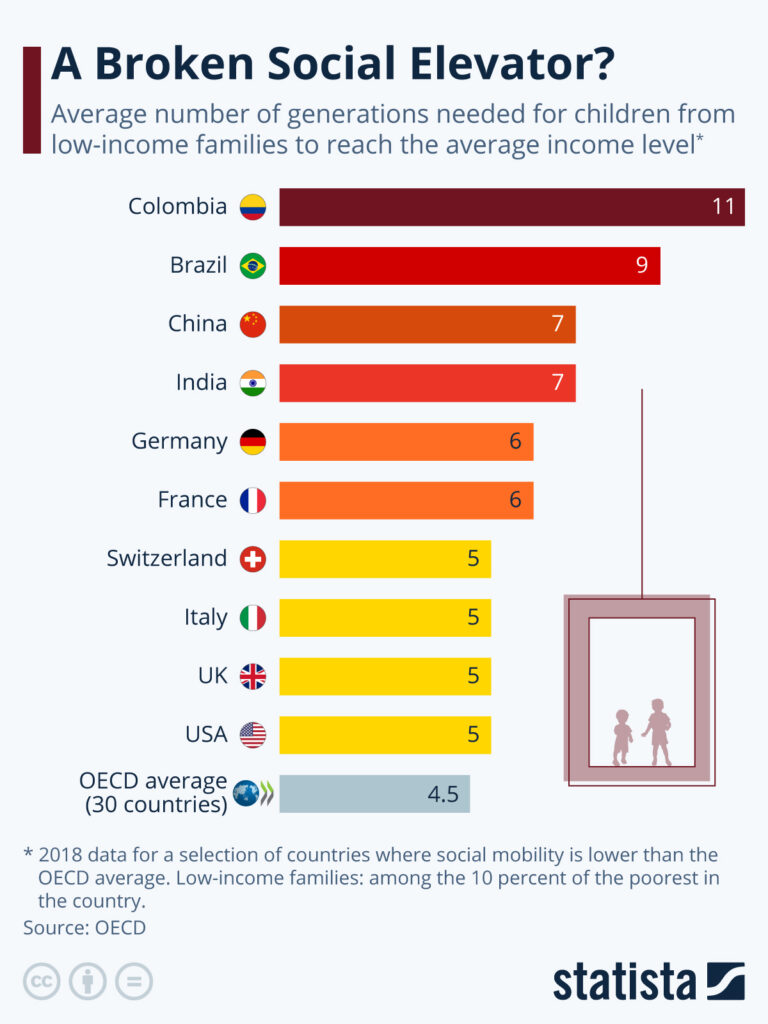
Who is particularly at risk of poverty?
As can be seen in the chart from the Federal Agency for Civic Education, there are certain population groups in Germany that are particularly at risk of poverty. We take a closer look at some of them here.
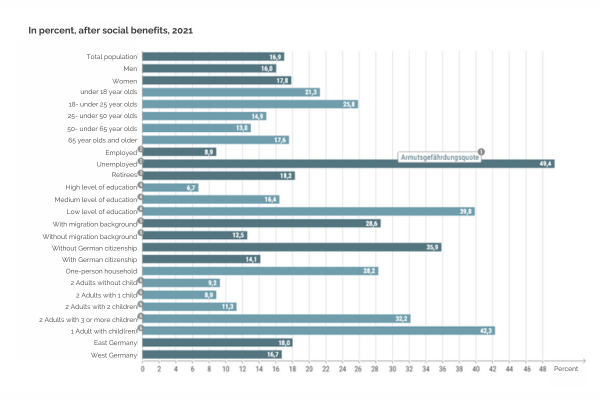
Unemployed people
Over 49% of people without a regular income are at risk of poverty in Germany, making them the largest group of those affected. This most frequently affects those who are unemployed for a longer period of time or who fall into unemployment from the low-wage sector. Anna Mayr, journalist and author of the book “Geld spielt keine Rolle” (Money doesn’t matter), says in an interview with Deutschlandfunk: “The most important thing in our society is work. And it is precisely this focus on work that turns the unemployed into outsiders.” At the same time, having a permanent job does not rule out the possibility of falling into poverty, as around 9% of people in employment are also at risk of poverty.
Single parents
At 42.3%, they are the second largest group at risk of poverty. Once again, women are significantly more affected than men. Single parents are exposed to a higher risk, as they are doubly burdened without a strong family network. On the one hand, they have to provide for themselves and their children, and on the other, the maintenance to which they are actually entitled is often not paid. A study by the German Youth Institute shows that of the children for whom maintenance payments have been determined, 37% receive no or only incomplete maintenance from the other parent.
People with a low level of education
According to the Federal Statistical Office, they are 39.8% more susceptible to poverty because they are more likely to work in the low-wage sector. In 2024, the proportion fell from 21% in 2018 to 16%, representing a significant improvement. Another problem for those affected is that they fall into the so-called ‘low-wage trap’ and, although they work full-time, their salary is not enough and they only receive a small pension in old age.
People with a migration background or without German citizenship
According to the Federal Statistical Office, people with a migrant background will be twice as likely to be at risk of poverty (23.7%) in 2024 as people without a migrant background (11.8%). The causes include, among other things, lower average levels of school and vocational education, language barriers, limited recognition of qualifications, limited length of stay, and more frequent low-paid jobs.
Pensioners
In the group of people aged 65 and over, 18.2% are at risk of poverty. Single people and women in particular suffer from financial insecurity. The serious difference to other groups is that poverty in old age is often final and people cannot find a financial way out. In 2021, the Federal Ministry published a study on “Old age in Germany (D80+)” for the first time, which showed that 22.4% of over-80s are affected by poverty. This figure will continue to rise in the future due to increasing life expectancy.
Women
Women in Germany are slightly more at risk of poverty than men in all age groups. In 2021, 17.8% of them were affected, compared to 16% of men. One key aspect is that women are more likely to work part-time for family reasons and therefore earn less. As a result, women have lower pension entitlements and are therefore more affected by old-age poverty, among other things. Added to this is the gender pay gap, which, according to a study by the Federal Statistical Office, shows that women still earn on average 7% less per hour than men for comparable jobs, qualifications and employment histories.
How many children live in poverty?

According to the Bertelsmann Stiftung ‘s factsheet “Child and youth poverty in Germany”, more than one in five children, i.e. almost 3 million children, were at risk of poverty in 2021. The risk of poverty is particularly high in families with single parents or with more than two children (see Chapter 5).
One of the main reasons for this is that the parents’ financial situation has a direct impact on the children. This means that if parents work in the low-wage sector or are dependent on social benefits, there is, simply put, little left for the children. Due to their income situation, they often suffer from an unhealthy diet, poorer educational opportunities and less social participation and often feel the effects for the rest of their lives.
This dependency is also reinforced by the fact that any additional income earned by the children is offset against the parents’ social benefits. It was therefore hardly worthwhile for them to take on a part-time job, as monthly additional earnings of over €100 were almost entirely subject to crediting. This changed with the amendment to the law on Januar 1 2024, according to which additional income of pupils, trainees and students up to €538 is exempt from offsetting (more on this here).
According to a survey of children and young people (aged 10-17) conducted by the Deutsches Kinderhilfswerk in 2023, another main reason for the persistence of child poverty is the lack of support and encouragement in education.
What is the German government doing to combat poverty?
Germany is a welfare state, as enshrined in the Basic Law(GG Articles 20 and 28). “This means that the legislator in the Federal Republic must also take care of social justice and the social security of citizens,” writes the German Bundestag. Germany therefore has a range of measures in place to prevent or alleviate poverty.
Unemployment benefit (Arbeitslosengeld)
People who lose their job and meet certain requirements receive unemployment benefit from the Employment Agency after applying for it. This is based on the average gross salary in the year prior to the application (to the Employment Agency).
Citizen’s income (Bürgergeld)
Citizen’s income is available to people who (temporarily) have no income or whose income is below the minimum subsistence level. The application is made via the Jobcenter and the amount depends on the family status and living situation (to the Jobcenter).
Social welfare (Sozialhilfe)
People who are temporarily unable to work and who are not entitled to either unemployment benefit 1 or citizen’s allowance can apply for social assistance. Social assistance can be applied for at the social welfare office in your place of residence (more here).
Housing benefit (Wohngeld)
The housing benefit subsidy is intended to enable people to receive financial support for their accommodation without having to apply for citizen’s allowance or social assistance. The applications are not as extensive as for citizen’s allowance or social assistance and are therefore easier to apply for (more here).
Child benefit (Kindergeld)
Parents receive child benefit of €255 per child, at least until their 18th birthday. In addition, there is an immediate supplement of €25 per month for children, adolescents and young adults affected by poverty. Child benefit is applied for at the family benefits office (more here).
Student grants (BAföG)
BAföG provides young people with financial support for training or studies. This is a non-interest-bearing loan that does not have to be repaid in installments until 5 years after the end of the standard period of study or training (more here).
Basic pension (Grundrente)
The basic pension is a supplement to the pension. The prerequisites are that you have 35 years of basic pensionable service and still only receive a small pension. There is no need to submit an application to receive it; the basic pension entitlement is checked automatically (more here).
Minimum wage (Mindestlohn)
Germany has had a minimum wage since 2015, which currently stands at €12,82 gross per hour (as of January 2025). This is stipulated by law and is intended to prevent people from falling into poverty despite being employed.
How you can take action against poverty via vostel.de
In addition to state institutions, many charitable organizations are also committed to helping people at risk of or affected by poverty. And you can support them. For example, by accompanying children and young people on their educational journey as a mentor, helping newcomers to arrive in Germany with a sponsorship or helping to care for people in need in food banks, clothing stores or emergency shelters.
At vostel.de there are countless ways in which you can get involved in the fight against poverty and for more equal opportunities in Germany.
Your team from vostel.de
wishes you every success with your commitment against poverty in Germany!



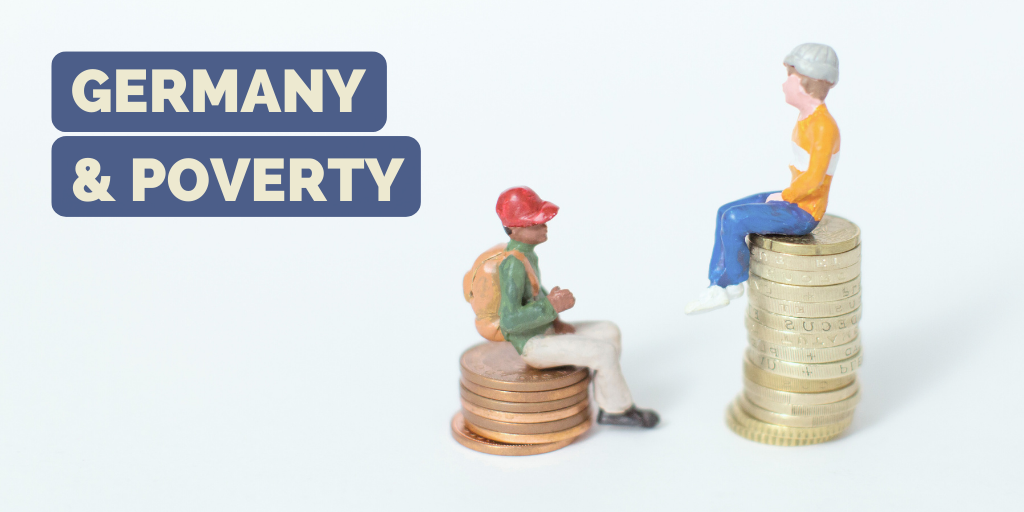

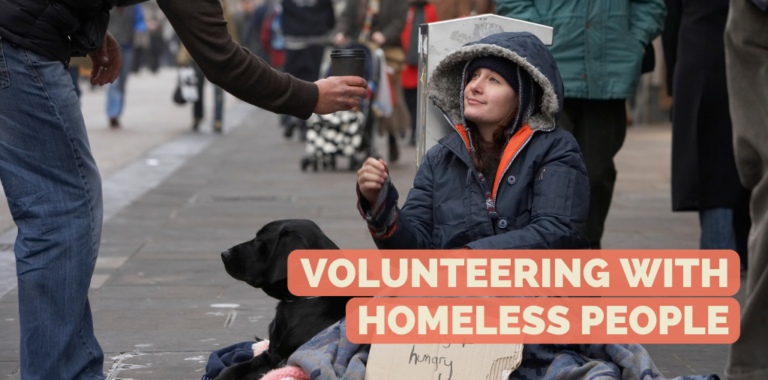


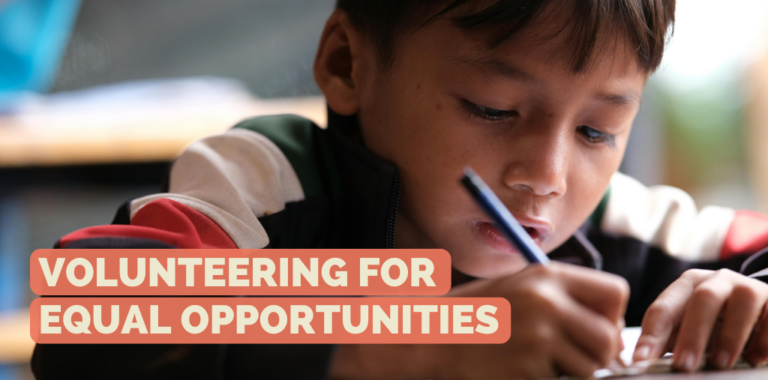
No Comments yet!